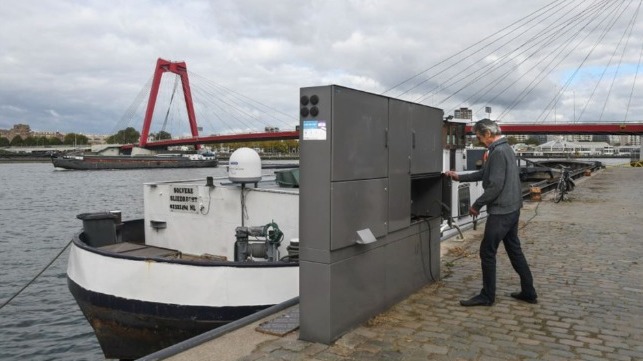British Ports Call for Government Backing for Shore Power

Government investment in shore power infrastructure has the potential to greatly reduce carbon emissions and air pollution, according to a new report commissioned by the British Ports Association (BPA).
Shore power projects can be difficult and expensive, with few (if any) moving forward in any locality without some form of government backing. The payback periods are long, and the ROI is often uncertain. Ports are often constrained by a lack of grid capacity in their area, along with the complex regulatory structure of the energy system. These factors contribute to high costs and can make adoption difficult.
The environmental benefits, however, are quite clear. Shore power is an effective method of reducing health-hazardous air pollutants (like NOx and particulate matter) in seaport communities, and for this reason it is mandatory at smog-prone Southern California ports. It is also a means of decarbonizing one element of vessel operations, assuming that the electrical power is from a sustainable source. The UK is rapidly expanding its offshore wind capacity, making its electrical power grid less carbon-intensive.
The report argues that these benefits could be realized if shore power were addressed in the UK government's soon-to-be-released Transport Decarbonization Plan. The needed policy changes would include:

that matters most
Get the latest maritime news delivered to your inbox daily.
- An investment fund to support the development of shore power projects by 2025;
- Reductions in electricity taxes for shore power to allow it to compete with untaxed marine diesel fuel, as seen in Germany, France, Denmark and Sweden;
- A commitment to enact a zero-emission regulatory standard for vessels in port; and
- A commitment to enabling port electrification and smart grids through changes to grid planning and regulation.
“Ports and the maritime sector are committed to reducing emissions and playing their crucial role in a net zero future for the UK. Today’s research shows the hunger from industry to increase electrification of its activities," said Tim Morris, the CEO of the UK Major Ports Group. "Government needs to back its ambition and targets with investment support and improvements to the energy system."
